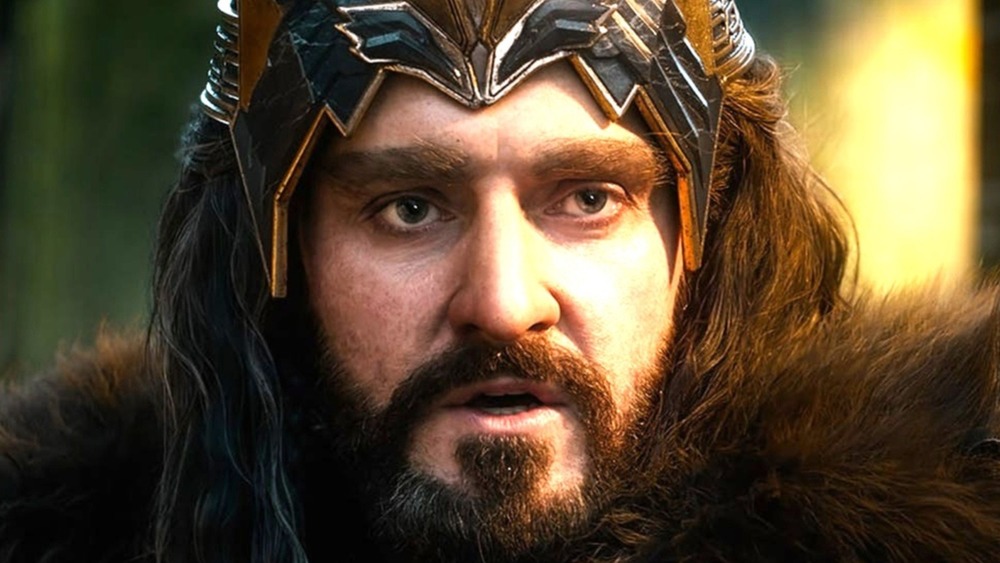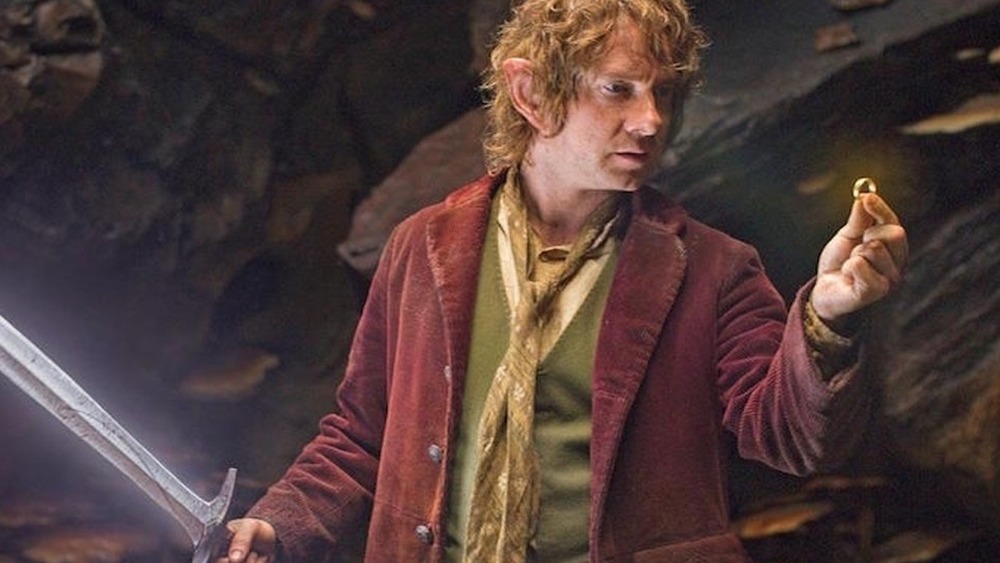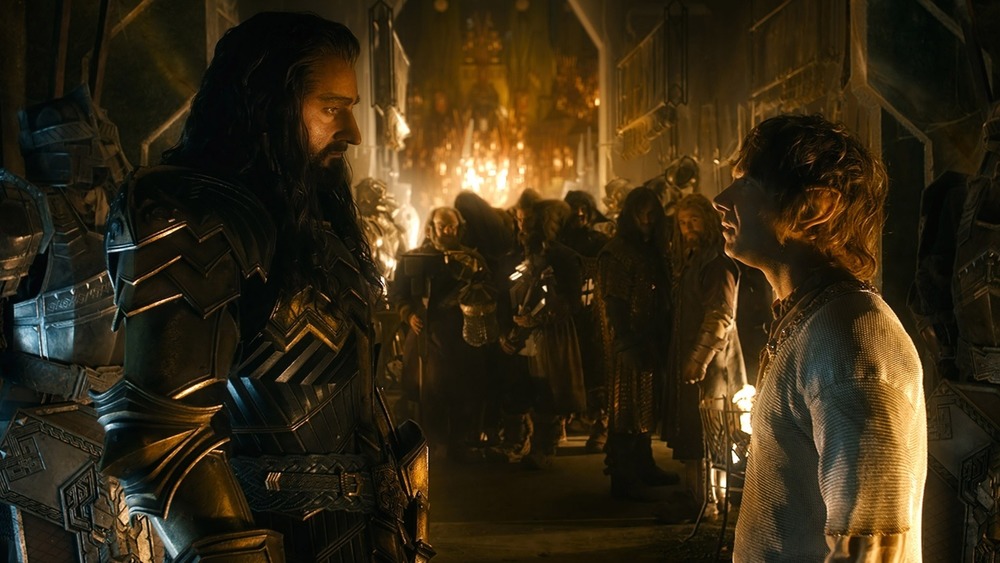Will We Ever See The Hobbit 4?
Following the smash success of director Peter Jackson's The Lord of the Rings trilogy in the early 2000s, the obvious wonder was whether or not more of J.R.R. Tolkien's works would get their own big-screen adaptations. After all, there was plenty to choose from, and most audiences wouldn't turn down a return to Middle-earth. Chief among these titles was The Hobbit, a novel that put Tolkien on the map when it was published in late September 1937. Unsurprisingly, the Bilbo Baggins-centric tale finally made it to the cinema, with Jackson — not Guillermo del Toro, as previously planned — once again taking on the challenge.
Jackson kicked things off in 2012 with The Hobbit: An Unexpected Journey, which became the first part of a trilogy, despite the source material spanning only one book. 2013 then hosted The Hobbit: The Desolation of Smaug, and 2014 wrapped up the franchise with the release of The Hobbit: The Battle of the Five Armies. Resounding financial success aside, these movies left everyone from prolific Hobbit readers and Lord of the Rings fans mildly let down in their own ways. Although, that's not to say that a fourth installment wouldn't entice a fair amount of Tolkien die-hards.
Therefore, the question remains: Will we ever see a fourth addition to the Hobbit story? Let's take a look at the evidence and see what the odds are at the present moment.
Film rights are tough to navigate
First and foremost, it's important to address the likelihood of a fourth Hobbit movie being legally allowed to get off the ground in the first place. Since the films owe their existence to literary publications of J.R.R. Tolkien, those behind the Hobbit and Lord of the Rings trilogies had to iron out the details with his estate for production to get underway. Without the estate's approval and willingness to hand over the rights to Middle-earth, its characters, and stories, none of them can arrive on the big screen. Also, according to Jackson, the estate isn't not too keen on future cinematic ventures.
During a press conference in London in 2014, Jackson explained the complexities behind returning to adapt more of Tolkien's universe. "It's a legal thing. The Tolkien estate owns the writings of Professor Tolkien. The Hobbit and The Lord of the Rings were sold by Professor Tolkien in the late '60s — the film rights," he said (via NME). "But they are the only two works of his that have ever been sold. So without the cooperation of the Tolkien estate, there can't be any more films."
Not to mention, J.R.R.'s son Christopher Tolkien made no bones about his distaste for Jackson's interpretations of his father's creations. He even claimed that "the commercialization has reduced the aesthetic and philosophical impact of the creation to nothing," citing his concerns that both the Lord of the Rings and Hobbit series shouldn't have become the big-budget action epics they turned out to be (via IndieWire). Christopher died in January 2020, but his death certainly doesn't make matters any less complex; in fact, it makes things more complicated, since the wishes of another late Tolkien need to be considered. His negative feelings towards Jackson's other trilogies compounded with his death would be all the more reason to not make another Hobbit movie.
Overall, it's fair to say that the legalities surrounding a potential Hobbit 4 aren't worth sorting out.
The Hobbit trilogy's story ended definitively
Should a fourth Hobbit outing ever come to fruition, the story — and determining what's left to tell — is a serious obstacle to overcome. The plot would have to be strong enough to justify the movie's existence, add something worthwhile to the canon, and still provide context to Middle-earth's trajectory. At the time of the original trilogy's release, there weren't any concrete plans for further continuation, so The Battle of the Five Armies ended the Hobbit narrative pretty definitively.
The movie ends with Smaug (Benedict Cumberbatch) and Azog (Manu Bennett) defeated. The dwarves, having regained Erebor, reopen their doors to the nearby town of Dale, and Bilbo (Martin Freeman) returns home to the Shire with the One Ring. Additionally, Elrond (Hugo Weaving), Galadriel (Cate Blanchett), Saruman the White (Sir Christopher Lee), and Gandalf the Gray (Sir Ian McKellen) banish the Necromancer to Mordor, where he'll reveal himself as Sauron in the coming years. This through line aids in setting up the events of The Lord of the Rings, kickstarting Frodo Baggins' (Elijah Wood) arc and putting a punctuation mark on his Uncle Bilbo's.
Simply put, all of the necessary elements are right where they should be for the Tolkien-based canon to move forward without The Hobbit 4. Attempting to shoehorn in more story where there is none would only serve to muddy the waters. Besides, with Amazon Prime's Lord of the Rings and Hobbit prequel series on the horizon, it's safe to assume that the distant past of the Second Age will take the spotlight for the foreseeable future — making a fourth Hobbit adventure a pipe dream for the time being.


